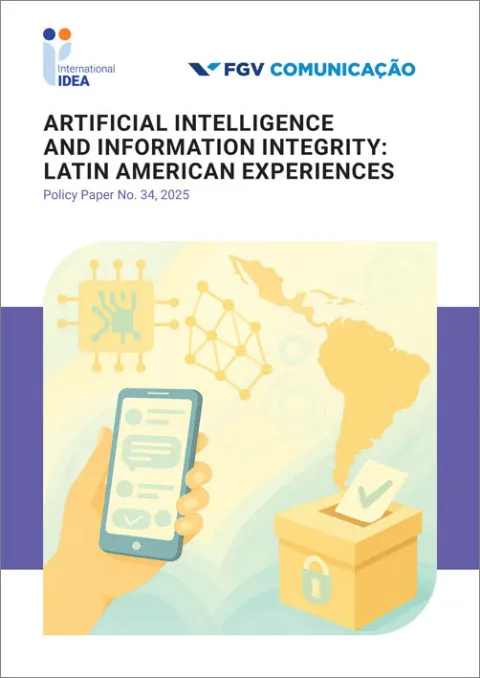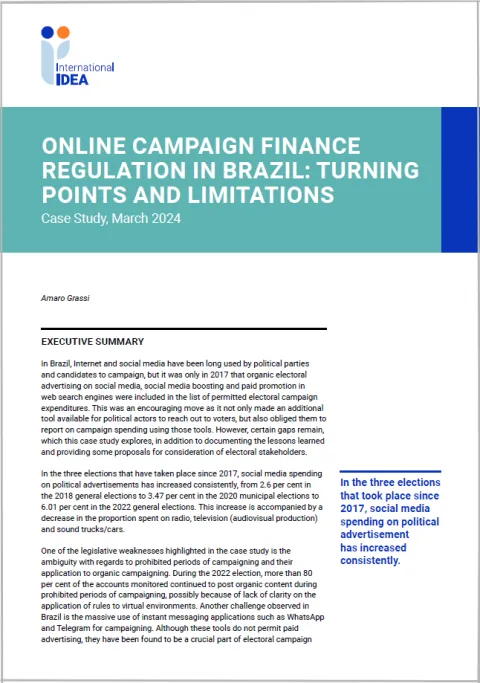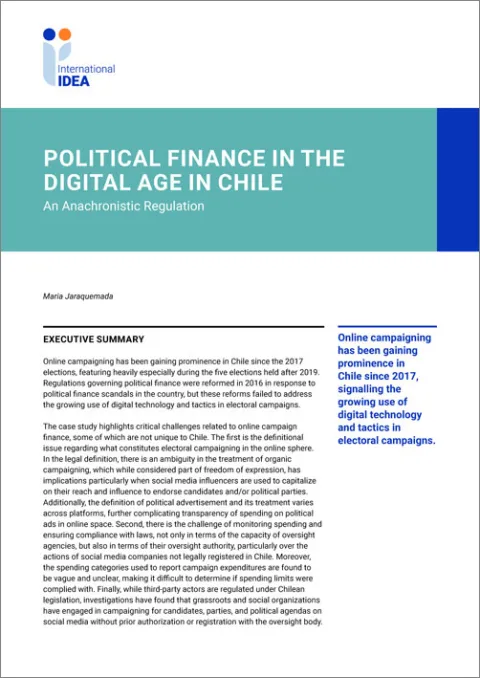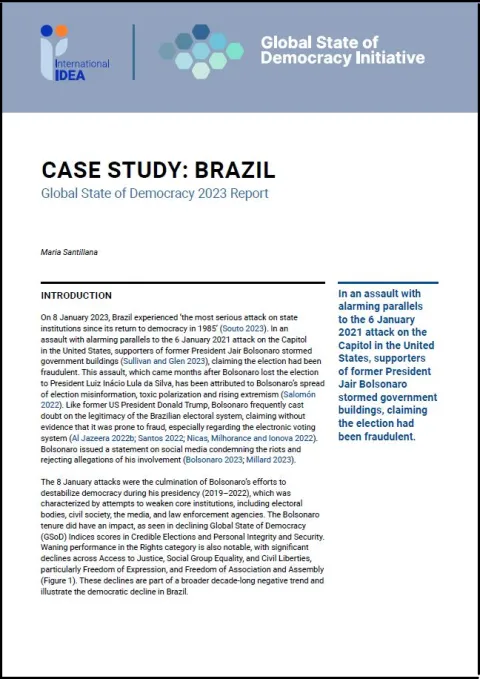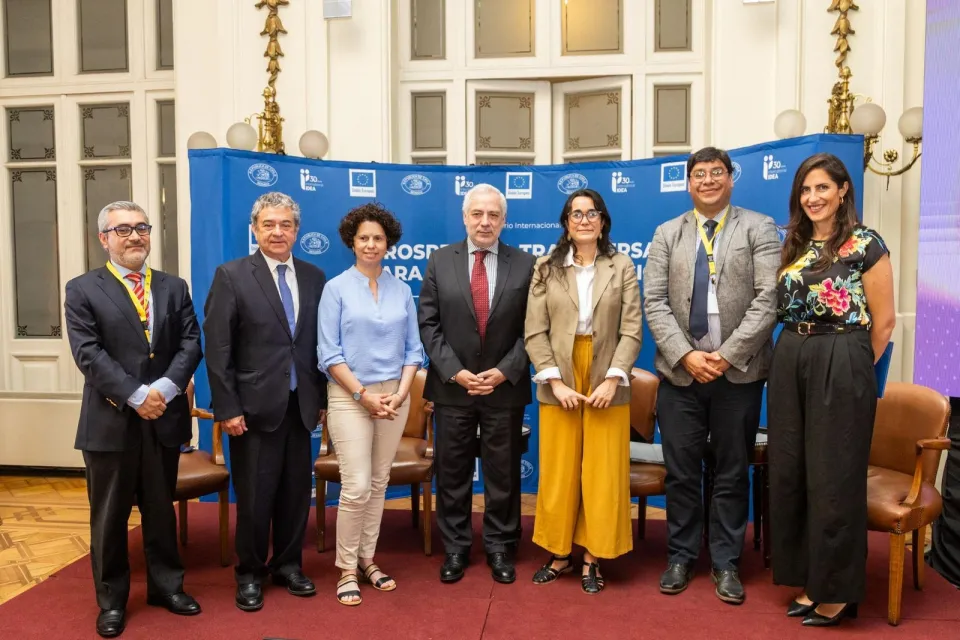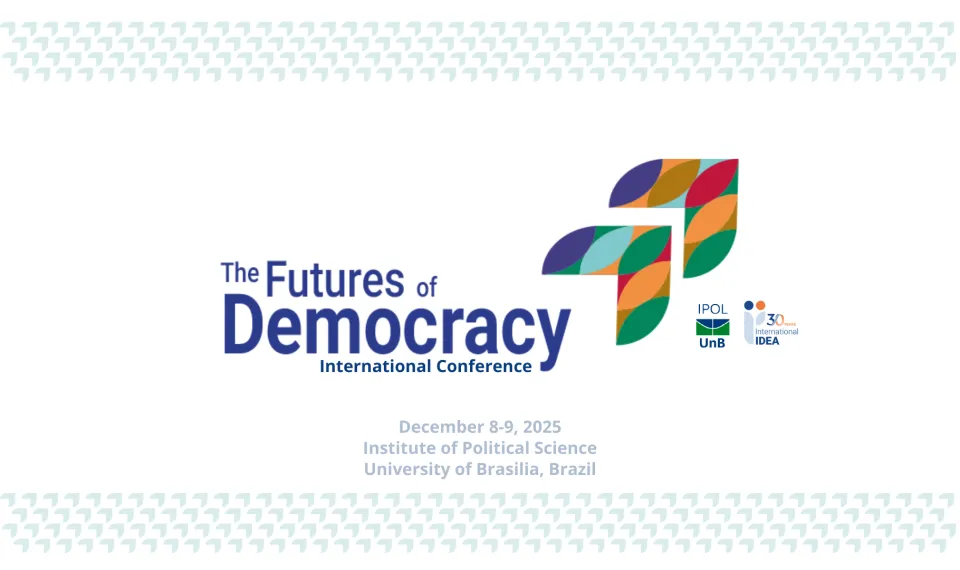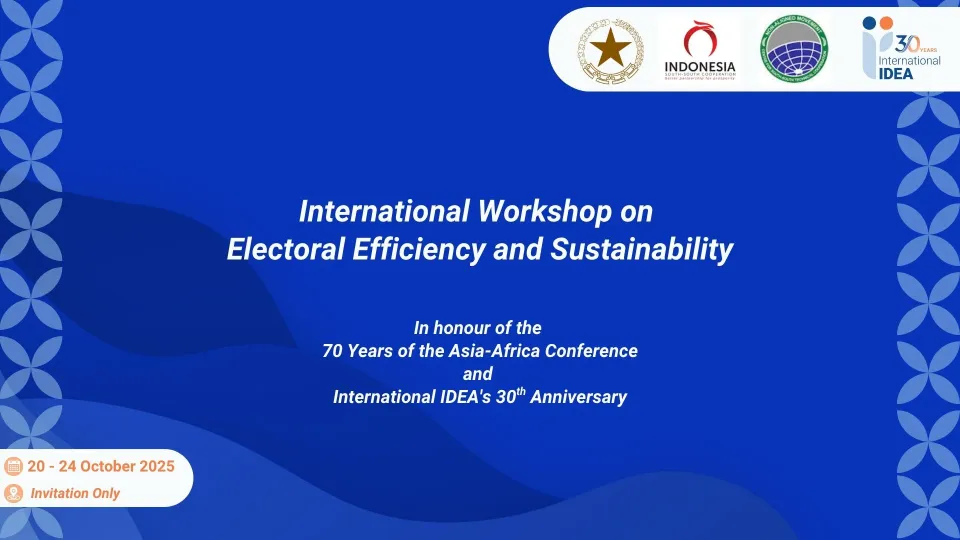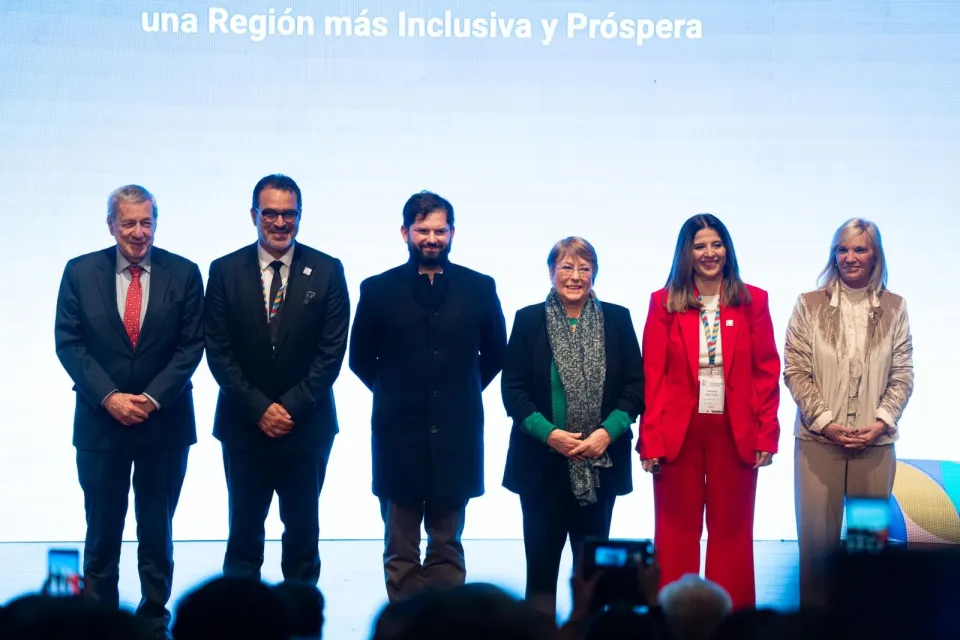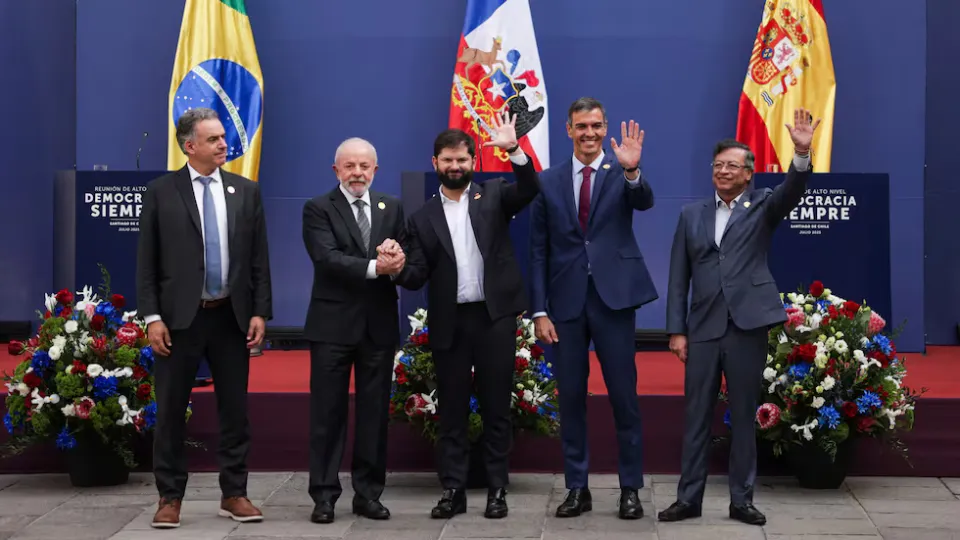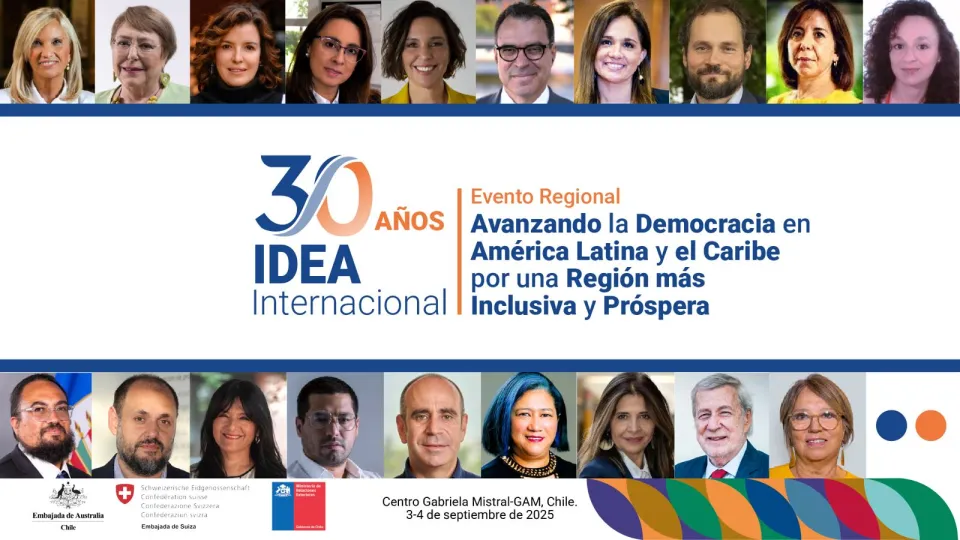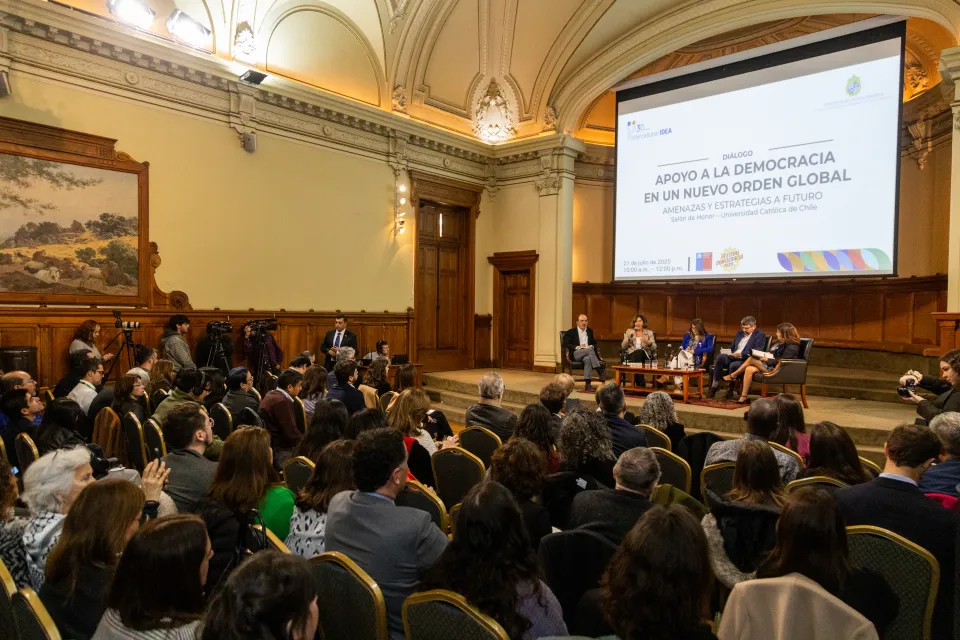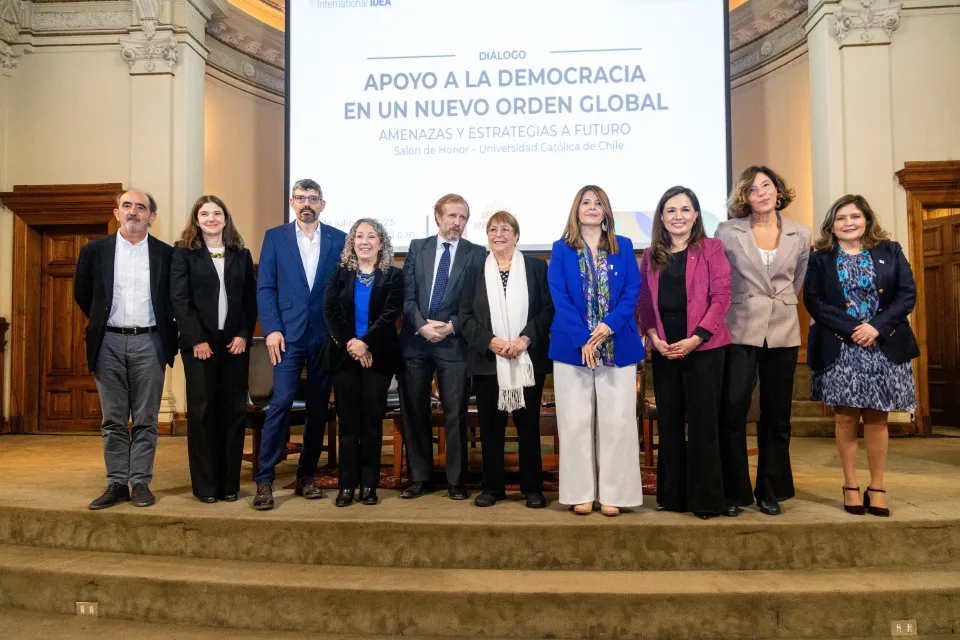Democratic Transitions
Published by Johns Hopkins University Press, Democratic Transitions: Conversations with World Leaders is a unique exploration of how countries become democracies, and the first volume in any language that focuses on learning lessons from political leaders about promoting and managing democratic transitions.
An initiative of International IDEA, the book presents personal reflections on ending authoritarian rule and building democracy by 13 former presidents who have played key roles in democratic transitions over the past 30 years. In probing interviews, the editors focus on each leader’s principal challenges and goals as well as their strategies to end authoritarian rule and construct democratic governance.
Context-setting introductions by country experts highlight each nation’s unique experiences and challenges; a chapter by Georgina Waylen analyses women’s often underestimated roles as leaders; and a foreword by Tunisia’s former president, Mohamed Moncef Marzouki, underlines the book’s relevance in North Africa, West Asia and beyond.
The editors’ conclusion distills lessons about how democratic transitions have been and can be carried out in a changing world, emphasizing the importance of political leadership. This unique book will be valuable for political leaders, civil society activists, journalists, scholars and all who want to support democratic transitions.
To order a printed copy, please visit John Hopkins University Press at the following link: <https://www.press.jhu.edu/books/title/11306/democratic-transitions>
Details
Contents
Foreword - Mohamed Moncef Marzouki, Former President of the Republic of Tunisia
Preface - Yves Leterme, Secretary General, International IDEA
Introduction - Sergio Bitar and Abraham F. Lowenthal
1. Brazil’s Transition: From Constrained Liberalization to Vibrant Democracy - Frances Hagopian
Interview with Fernando Henrique Cardoso, President of Brazil 1995–2003
2. Chile’s Successful Transition: From Intense Polarization to Stable Democracy - Genaro Arriagada
Interview with Patricio Aylwin, President of Chile 1990–94
Interview with Ricardo Lagos, President of Chile 2000–2006
3. Ghana’s Winding Path toward Democracy - Kwame A. Ninsin
Interview with John Agyekum Kufuor, President of Ghana 2001–9
Interview with Jerry John Rawlings, President of Ghana 1993–2001
4. Indonesia’s Democratic Venture: Problems, Prospects, and Remaining Challenges - Bahtiar Effendy and Mutiara Pertiwi
Interview with B. J. Habibie, President of Indonesia 1998–99
5. Mexico’s Gradual Democratization: From Above and from Below - Soledad Loaeza
Interview with Ernesto Zedillo, President of Mexico 1994–2000
6. The Philippines: “People Power”, a Troubled Transition and “Good Governance” - Mark R. Thompson
Interview with Fidel V. Ramos, President of the Philippines 1992–98
7. Poland’s Great Experiment: Creating Democracy through Protests, Repression, Negotiation, Elections and the Politics of Zigzag - Jane L. Curry
Interview with Aleksander Kwasniewski, President of Poland 1995–2005
Interview with Tadeusz Mazowiecki, Prime Minister of Poland 1989–91
8. Democracy as By-Product: South Africa’s Negotiated Transition - Steven Friedman
Interview with F. W. de Klerk, President of South Africa 1989–94
Interview with Thabo Mbeki, President of South Africa 1999–2008
9. Spain: Transition by Transaction - Charles Powell
Interview with Felipe González, President of the Government of Spain 1982–96
10. Women Activists in Democratic Transitions - Georgina Waylen
Acknowledgments
About the editors and contributors
Select bibliography
Index
Give us feedback
Do you have a question or feedback about this publication? Leave us your feedback, and we’ll get back to you
Send feedbackDemocratic Transitions
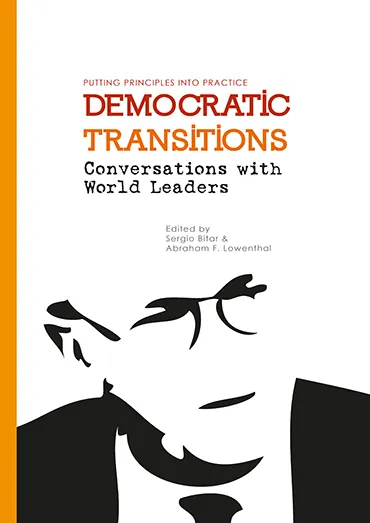
| Total views | 21530 |
|---|---|
| Downloads | 0 |
| Rating |
Give us feedback
Do you have a question or feedback about this publication? Leave us your feedback, and we’ll get back to you
Send feedback